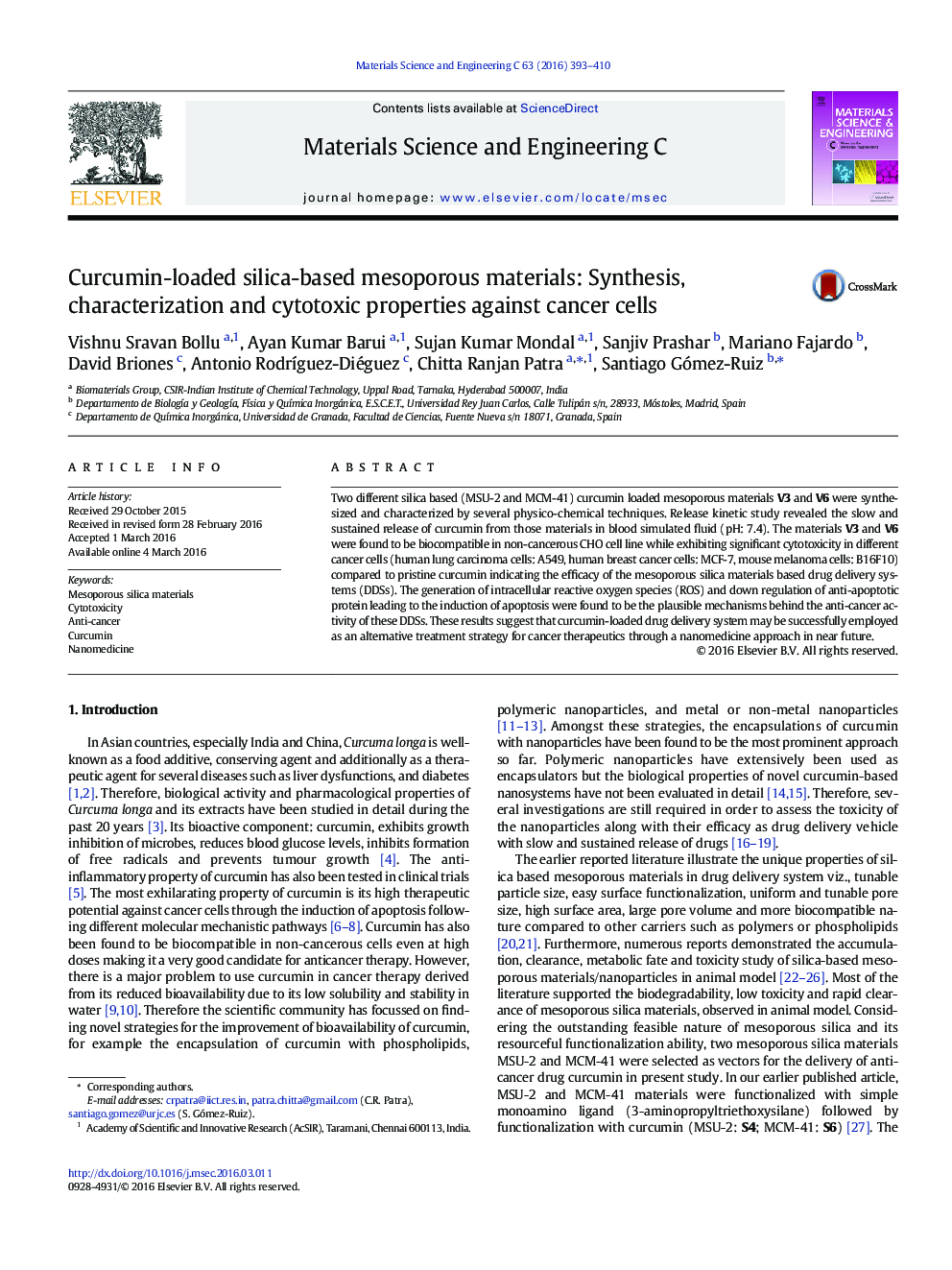| Article ID | Journal | Published Year | Pages | File Type |
|---|---|---|---|---|
| 1428032 | Materials Science and Engineering: C | 2016 | 18 Pages |
•Synthesis of novel mesoporous silica-based curcumin drug delivery system•Slow and sustained release of curcumin in blood simulated fluid•Enhanced cytotoxicity of curcumin in three diverse cancer cell lines•Cancer cell migration inhibition and generation of superoxide radicals•Activation of apoptosis by DNA damage and down regulation of BCL-2, EGFR proteins
Two different silica based (MSU-2 and MCM-41) curcumin loaded mesoporous materials V3 and V6 were synthesized and characterized by several physico-chemical techniques. Release kinetic study revealed the slow and sustained release of curcumin from those materials in blood simulated fluid (pH: 7.4). The materials V3 and V6 were found to be biocompatible in non-cancerous CHO cell line while exhibiting significant cytotoxicity in different cancer cells (human lung carcinoma cells: A549, human breast cancer cells: MCF-7, mouse melanoma cells: B16F10) compared to pristine curcumin indicating the efficacy of the mesoporous silica materials based drug delivery systems (DDSs). The generation of intracellular reactive oxygen species (ROS) and down regulation of anti-apoptotic protein leading to the induction of apoptosis were found to be the plausible mechanisms behind the anti-cancer activity of these DDSs. These results suggest that curcumin-loaded drug delivery system may be successfully employed as an alternative treatment strategy for cancer therapeutics through a nanomedicine approach in near future.
Graphical abstractFigure optionsDownload full-size imageDownload as PowerPoint slide
